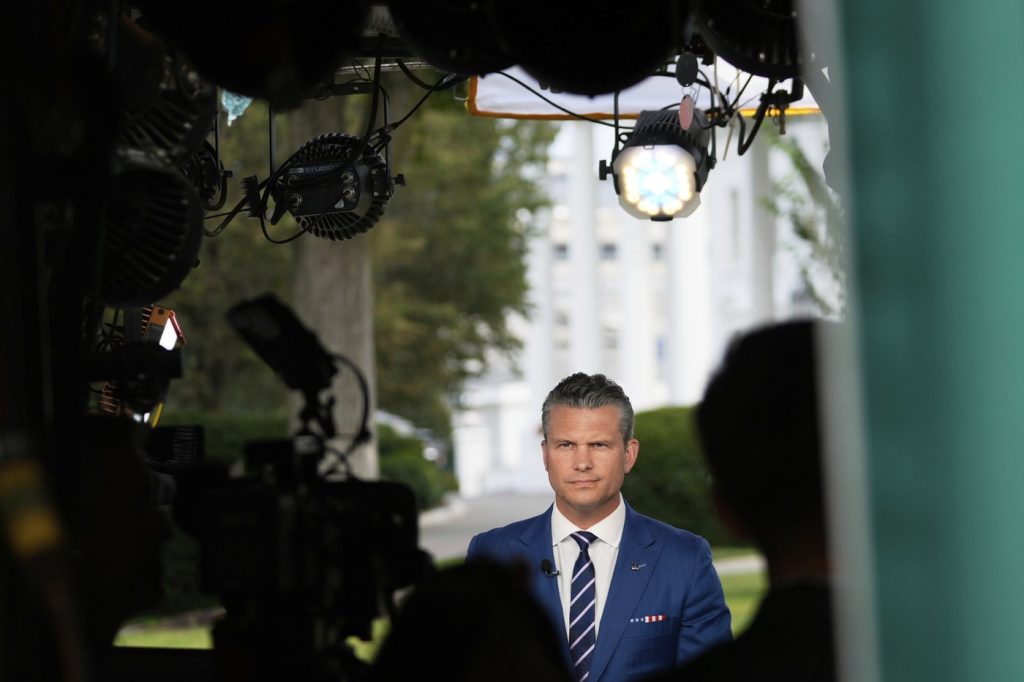WASHINGTON (AP) – The Defense Secretary of the United States, Pete Hegseth, has recently generated controversy after reposting a video that discusses a Christian nationalist church. The video, shared on social media platform X, highlights various pastors promoting extreme views, including the assertion that women should no longer have the right to vote.
This significant repost by Hegseth took place on Thursday night and underscores his deep connection to a prominent Christian nationalist pastor, Doug Wilson, who co-founded the Communion of Reformed Evangelical Churches (CREC). The almost seven-minute-long report by CNN showcases clips of church leaders and congregants expressing radical beliefs about the roles of women and the family unit in society. In the video, one pastor advocates for the repeal of women’s voting rights from the Constitution, while another suggests that voting should be done per household rather than by individual citizens. Additionally, a female member of the congregation is featured asserting her submission to her husband.
Accompanying the reposted video, Hegseth wrote, "All of Christ for All of Life," a phrase indicative of his alignment with the principles espoused by Wilson and his church. The post garnered significant attention, accumulating over 12,000 likes and 2,000 shares. Reactions were mixed; while some users agreed with the sentiments expressed by the pastors in the video, others voiced alarm and concern regarding the defense secretary’s endorsement of such Christian nationalist ideologies.
In response to the backlash, Doug Pagitt, the pastor and executive director of the progressive evangelical organization Vote Common Good, remarked that these views are held by “small fringes of Christians” and expressed dismay at Hegseth amplifying such beliefs. Pagitt described the promotion of these ideas as “very disturbing,” especially given Hegseth's position within the military and government.
On Friday, Pentagon chief spokesman Sean Parnell clarified Hegseth's relationship with CREC, stating that he is a “proud member” of a church affiliated with the organization and that he holds a high regard for many of Wilson’s teachings and writings. This affiliation illustrates Hegseth's personal convictions, which seem to align with the more conservative and nationalist elements of Christianity.
Moreover, it is notable that Hegseth has actively engaged in promoting Christian practices within his official capacity. In May, he invited his personal pastor, Brooks Potteiger, to the Pentagon to lead a Christian prayer service during work hours, with Defence Department employees and service members receiving invitations through their government email accounts.
In the CNN report, Doug Wilson openly expressed his desire for the nation and the world to adhere to Christian principles, stating, “I’d like to see the nation be a Christian nation, and I’d like to see the world be a Christian world.” His remarks and the content of the video contribute to a larger conversation about the evolving role of religion in the public sphere, particularly within powerful institutions like the military.
This incident raises pertinent questions about the intersection of personal beliefs, public office, and the implications of endorsing extremist views under the pretext of religious expression. As the story continues to unfold, the responses and consequences surrounding Hegseth’s actions will be closely monitored by both supporters and critics alike.












